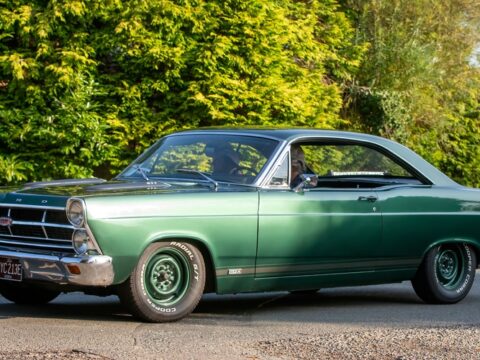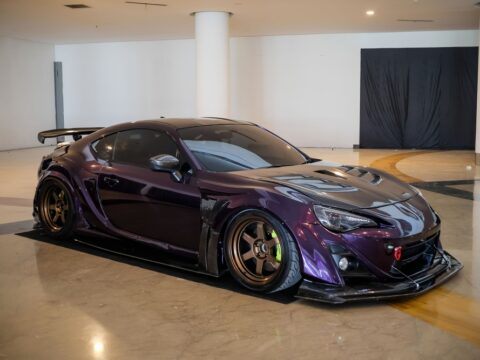Porsche has a rich history in motorsport, with models that have not only dominated the track but also become legends in their own right. From the early days of racing to modern-day innovations, each of these cars has contributed to the brand’s enduring legacy. Here’s a look at 19 of Porsche’s most iconic models and the motorsport achievements that made them famous.
Contents
Porsche 356
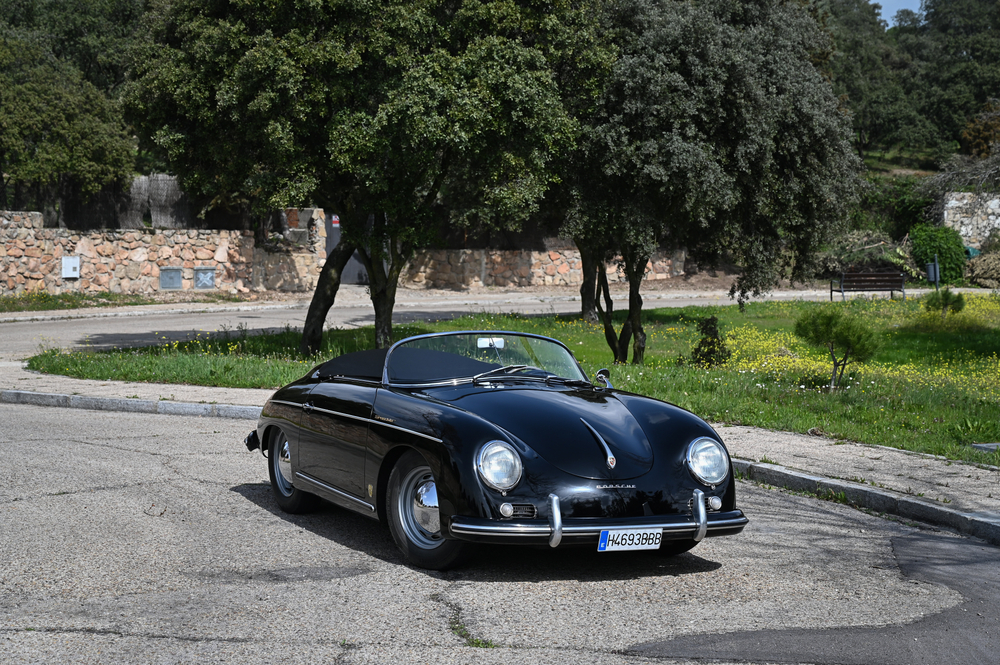
As Porsche’s first production car, the 356 laid a solid foundation for the brand’s motorsport legacy. Debuting in 1948, it quickly established itself as a racing icon, clinching a class win at the 1951 Le Mans. Its lightweight design, paired with a rear-engine layout, made it a formidable competitor. This early success set the tone for Porsche’s future in racing.
Porsche 550 Spyder
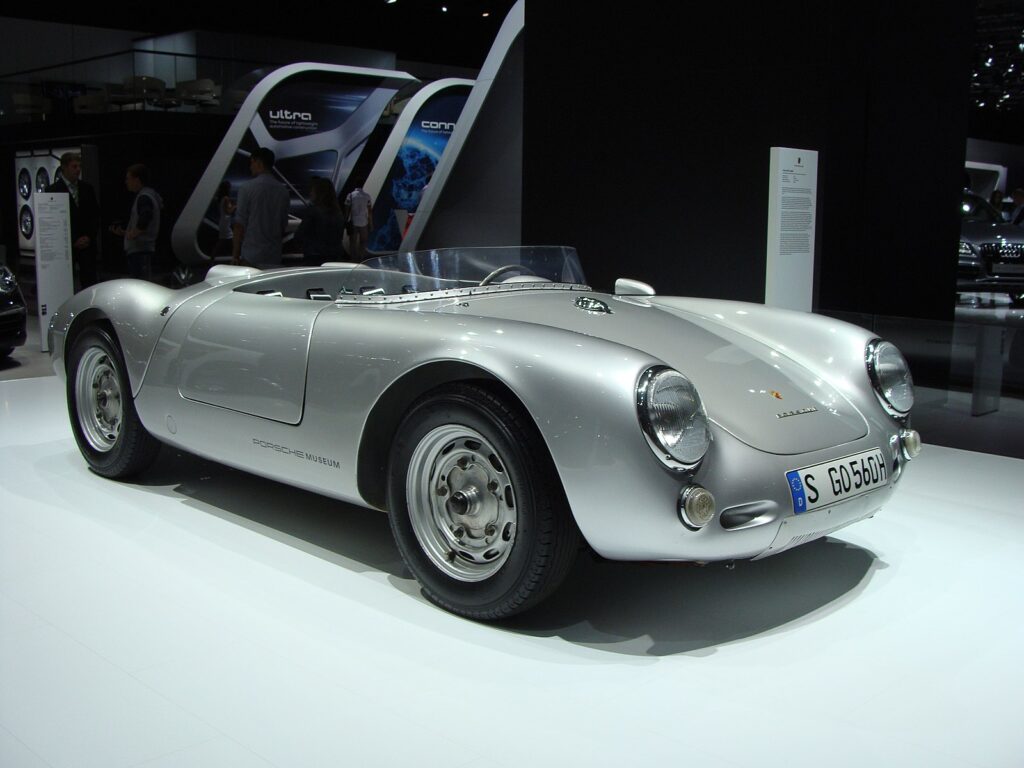
Introduced in 1953, the Porsche 550 Spyder became synonymous with racing excellence in the 1950s. Known for its victories, such as the 1956 Targa Florio, this mid-engine roadster showcased remarkable agility. Its lightweight construction allowed it to dominate winding circuits. The 550 Spyder’s association with James Dean further immortalized its legacy.
Porsche 718 RSK
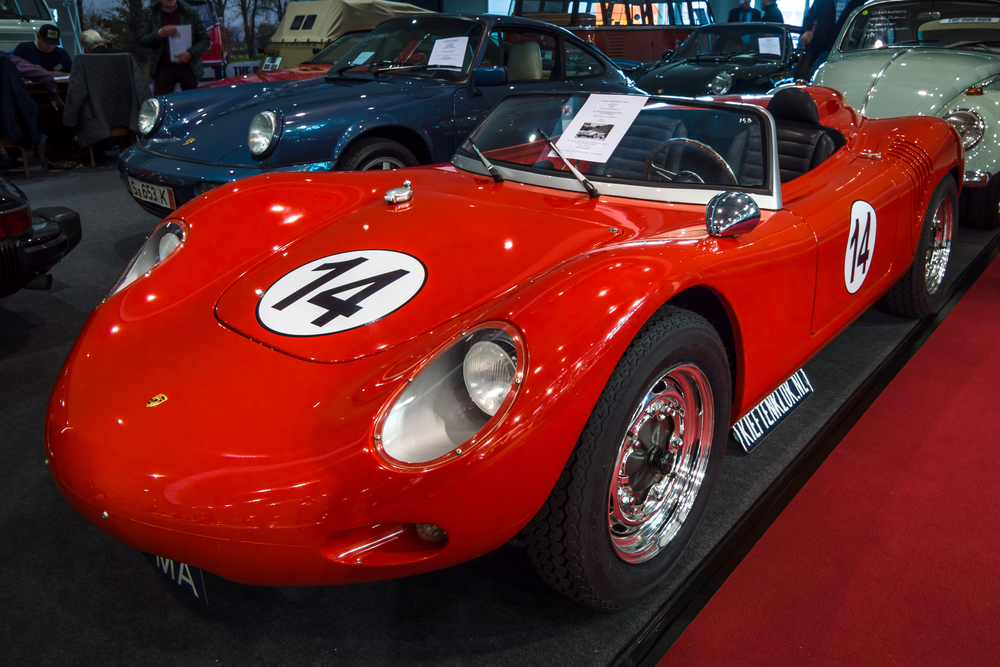
The Porsche 718 RSK, an evolution of the 550 Spyder, was crafted specifically for racing. With victories including a class win at Le Mans in 1958, it underscored Porsche’s innovative approach to design. The 718 RSK’s lightweight and aerodynamic features made it a standout. It remains a symbol of Porsche’s racing prowess in the late 1950s.
Porsche 911 Carrera RS 2.7
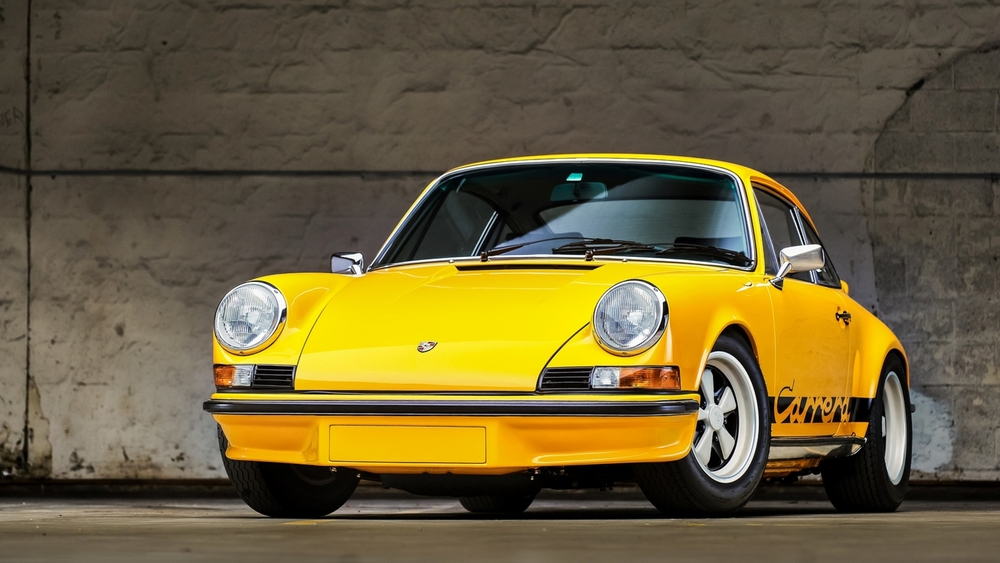
The 1973 Porsche 911 Carrera RS 2.7, with its distinctive “ducktail” spoiler, is one of the most iconic 911s ever produced. Designed for both road and track, it focused on weight reduction and enhanced aerodynamics. It achieved success in Group 4 racing and various rallies. This model laid the groundwork for the 911’s enduring motorsport legacy.
Porsche 917
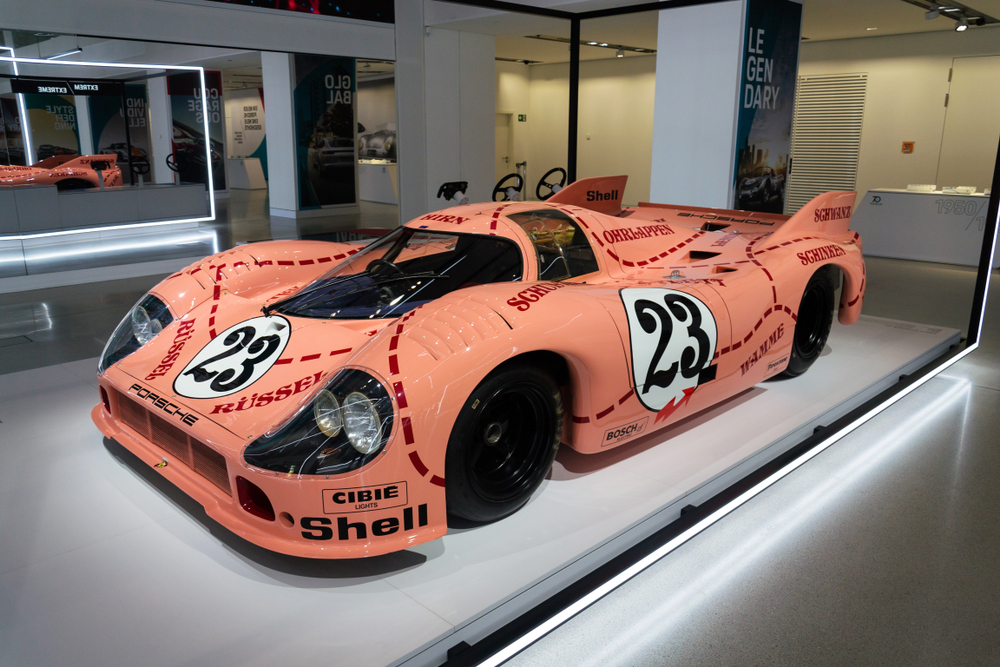
The Porsche 917, introduced in 1969, is arguably the most famous race car in the brand’s history. Dominating endurance racing, it secured back-to-back victories at the 24 Hours of Le Mans in 1970 and 1971. The 917’s innovative engineering and extraordinary speed made it a symbol of Porsche’s dominance. Its legacy in motorsport is unmatched.
Porsche 935
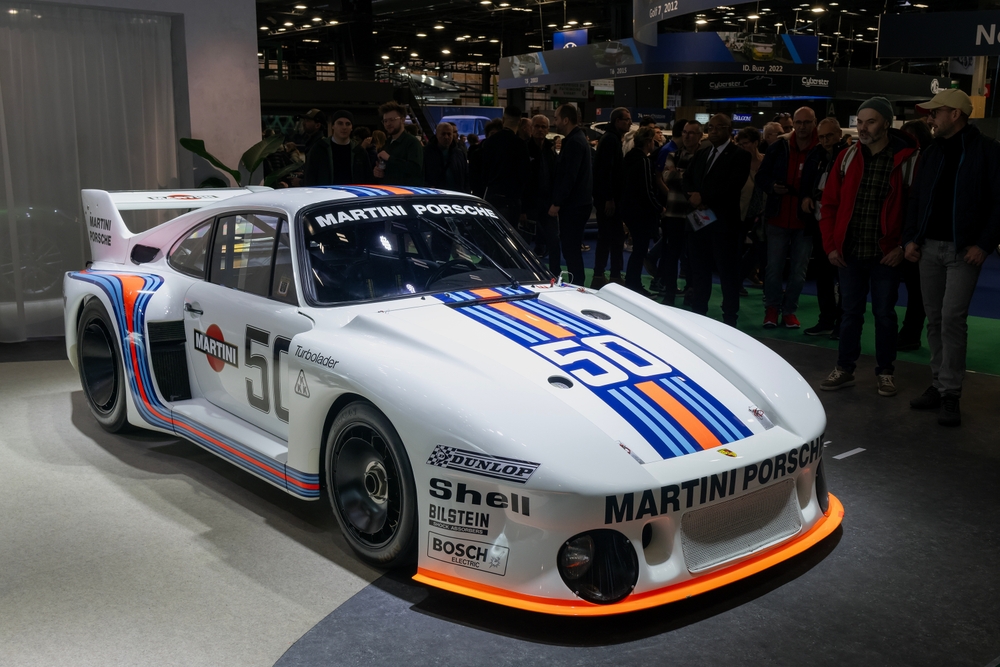
Launched in 1976, the Porsche 935 was a turbocharged marvel designed for Group 5 racing. Its overall victory at the 1979 24 Hours of Le Mans, a rare achievement for a car based on a production model, solidified its legend. The 935’s aggressive aerodynamics and immense power earned it the nickname “Moby Dick.” It remains an icon of 1970s motorsport.
Porsche 956
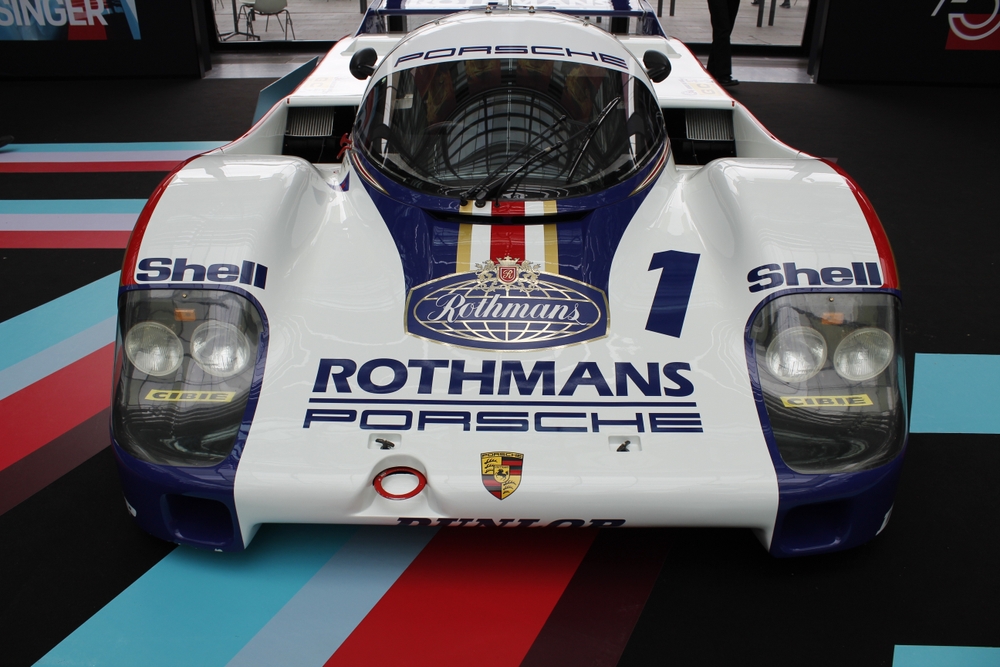
The Porsche 956, introduced in 1982, is one of the most successful sports cars ever built. It dominated Group C racing, winning the 24 Hours of Le Mans four consecutive times from 1982 to 1985. With its advanced aerodynamic design and ground-effect technology, the 956 set new standards in endurance racing. Its success further elevated Porsche’s motorsport reputation.
Porsche 959
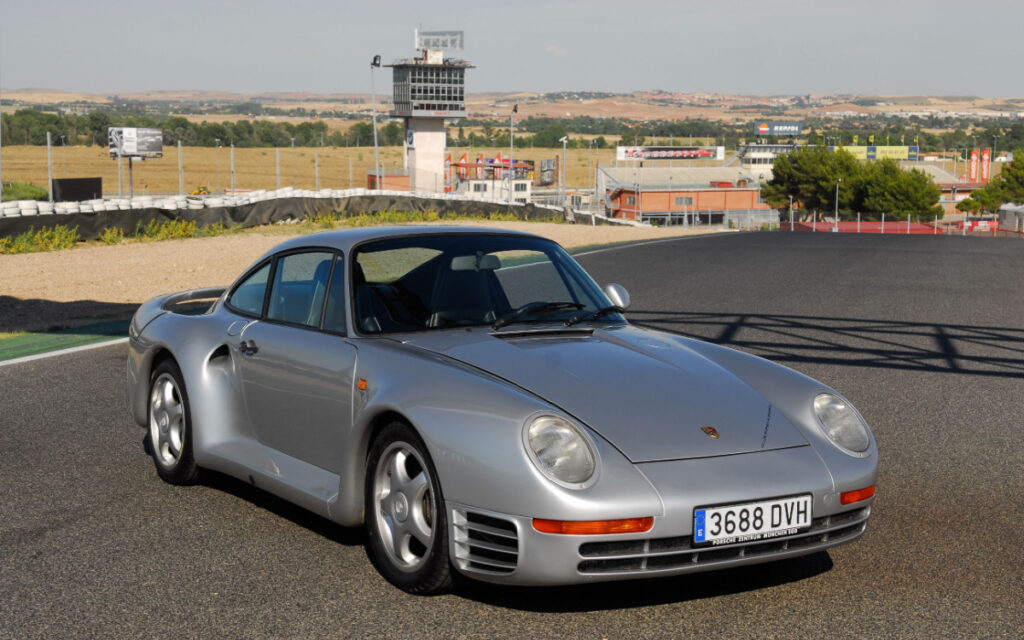
Originally conceived as a Group B rally car, the Porsche 959 became a technological marvel. Its advanced all-wheel-drive system and aerodynamics made it a standout in both racing and road performance. The 959’s victory at the 1986 Paris-Dakar Rally demonstrated Porsche’s engineering capabilities. It remains a significant chapter in Porsche’s motorsport history.
Porsche 962
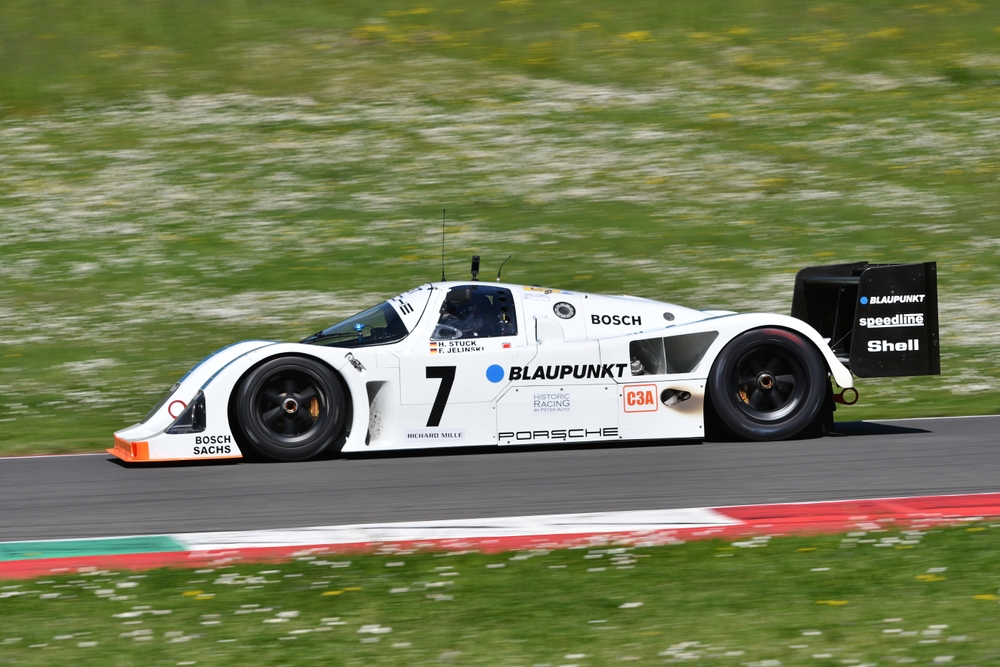
Continuing the legacy of the 956, the Porsche 962 dominated endurance racing in the late 1980s. Winning the 24 Hours of Le Mans in 1986 and 1987, the 962 was known for its reliability and performance. It became a favorite among privateer teams, ensuring its long career. The 962 is a cornerstone of Porsche’s racing heritage.
Porsche 911 GT1
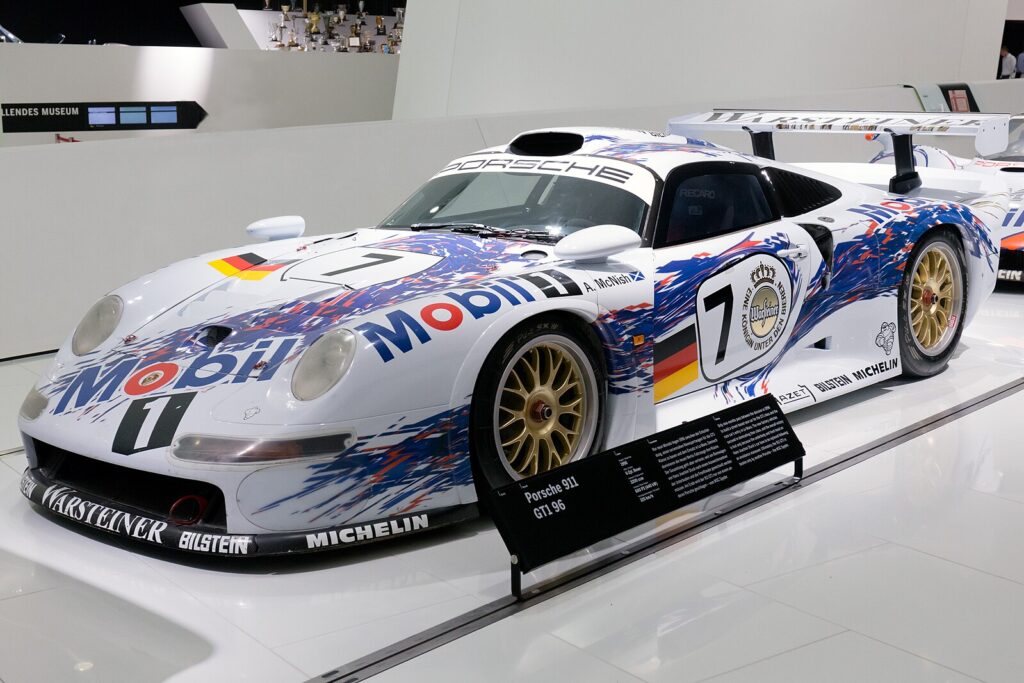
Developed in the mid-1990s, the Porsche 911 GT1 combined elements of the 911 road car with cutting-edge race car technology. It secured a historic victory at Le Mans in 1998, marking Porsche’s 16th overall win. The GT1’s unique blend of road and track capabilities made it a motorsport legend. This model highlighted Porsche’s continued success in endurance racing.
Porsche 914/6 GT
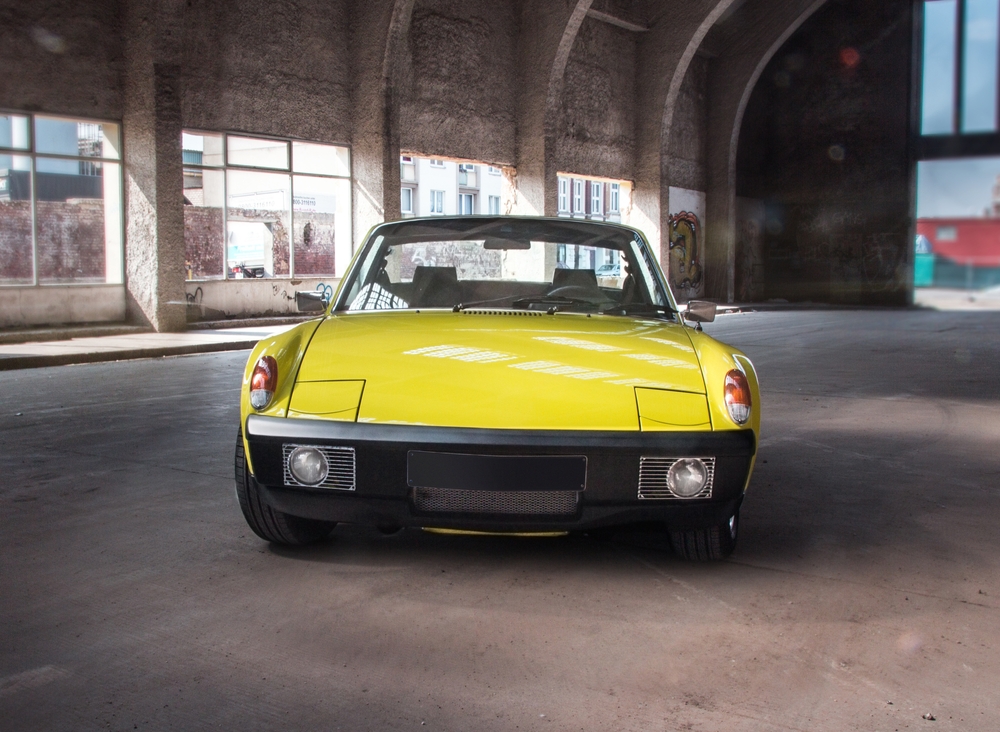
The Porsche 914/6 GT was a mid-engine racer that evolved from the 914 road car. Known for its lightweight design, it proved highly competitive in GT racing during the early 1970s. Its class win at the 1970 24 Hours of Le Mans was a testament to its capabilities. The 914/6 GT demonstrated that even Porsche’s less celebrated models could excel on the track.
Porsche 930 Turbo
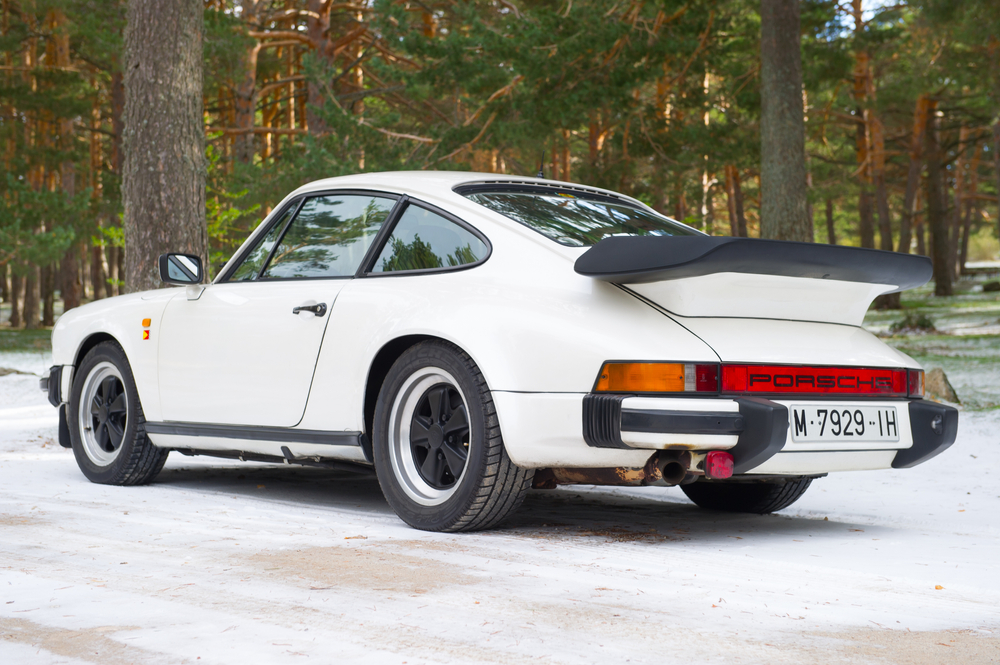
The Porsche 930 Turbo, introduced in 1975, brought turbocharging technology to the 911 lineup, creating a high-performance road car with racing credentials. While not a dedicated race car, the 930’s power and handling were deeply influenced by Porsche’s motorsport expertise. This model became a favorite among privateers in various racing series. Its legacy lies in bridging road and race car performance.
Porsche 911 RSR
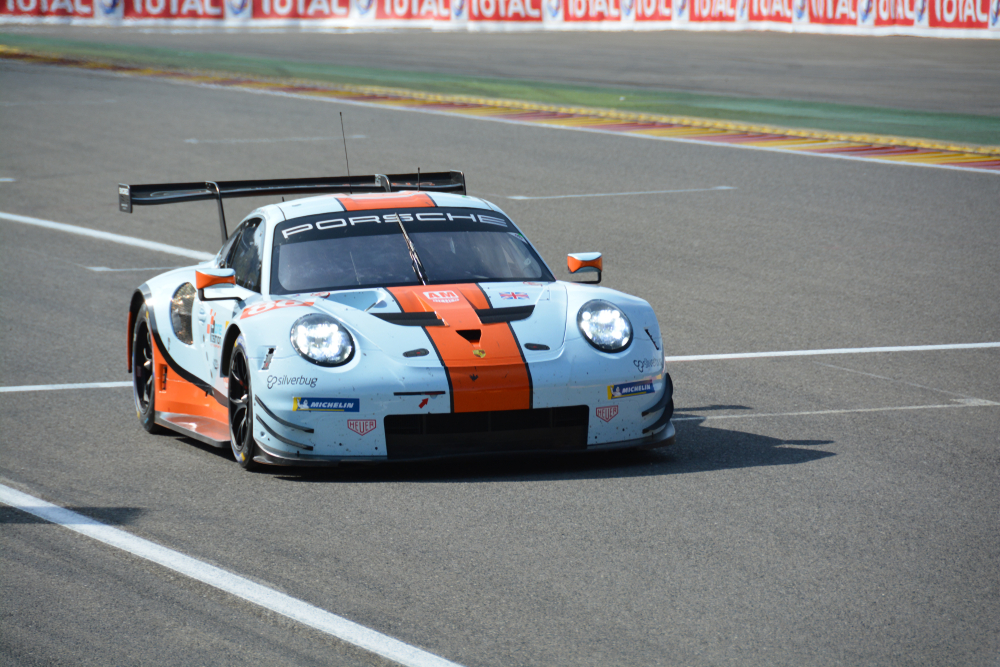
The Porsche 911 RSR is a modern-day racing version of the iconic 911, designed for endurance racing in the GT category. It has enjoyed significant success in prestigious events like the 24 Hours of Le Mans and the FIA World Endurance Championship. The 911 RSR continues Porsche’s tradition of translating road car engineering into racing triumphs. It represents the latest in Porsche’s motorsport evolution.
Porsche 919 Hybrid
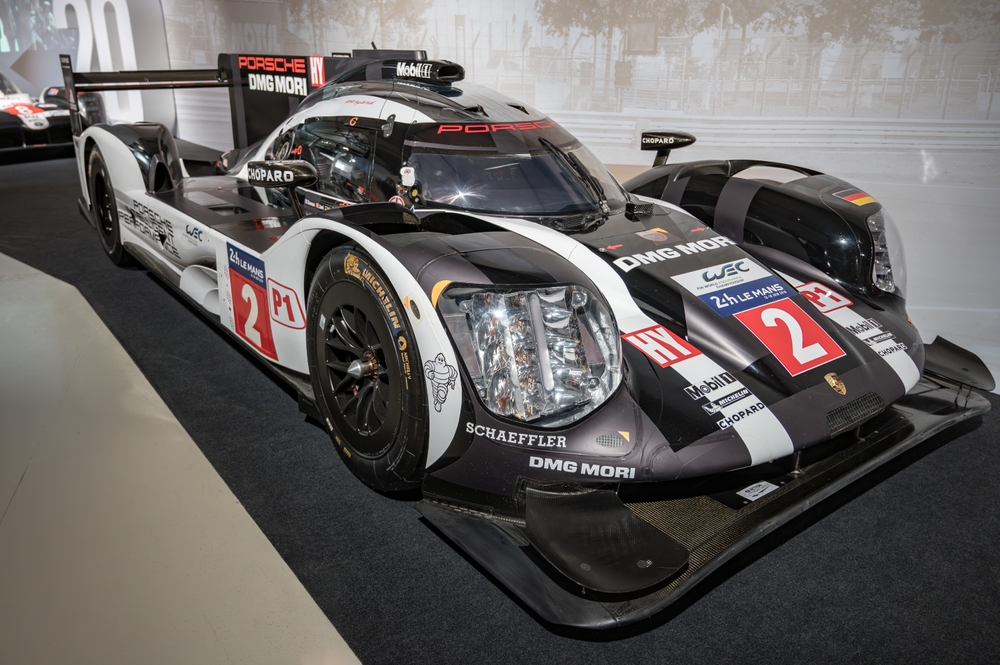
The Porsche 919 Hybrid marked Porsche’s return to the pinnacle of endurance racing in the 2010s. Equipped with a state-of-the-art hybrid powertrain, it secured three consecutive victories at Le Mans from 2015 to 2017. The 919 Hybrid’s combination of efficiency and performance demonstrated Porsche’s commitment to innovation. Its achievements underscore the brand’s adaptability in modern motorsport.
Porsche 935/78 “Moby Dick”
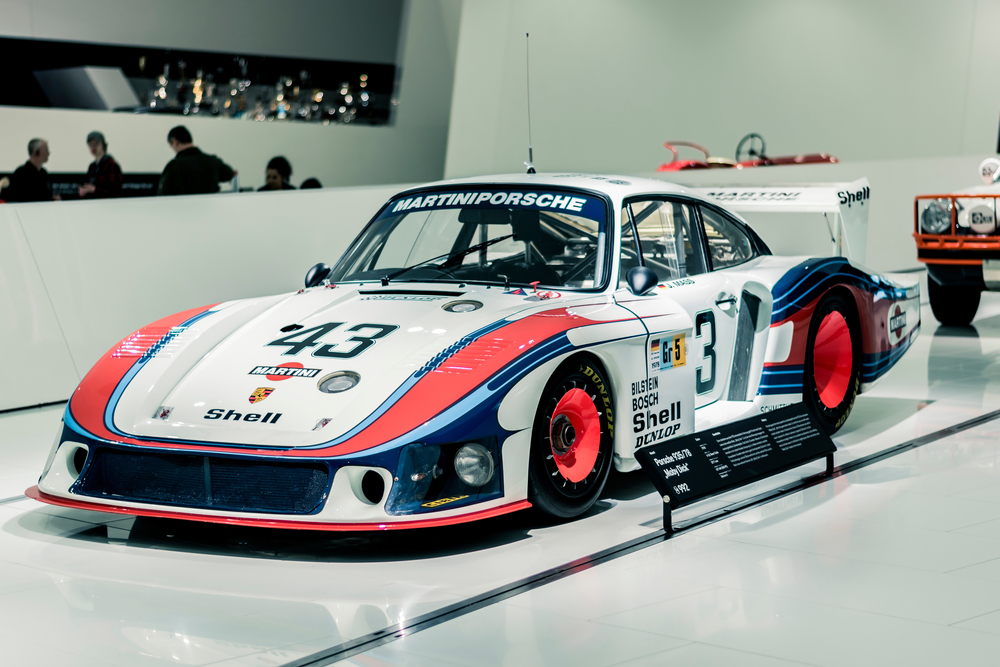
The Porsche 935/78, famously nicknamed “Moby Dick,” was the ultimate evolution of the 935 series. Its extreme aerodynamics and powerful turbocharged engine made it a standout in the 1978 racing season. Though its racing career was brief, its unique design and performance have left a lasting impact. “Moby Dick” remains one of the most iconic cars in Porsche’s history.
Porsche 904 Carrera GTS
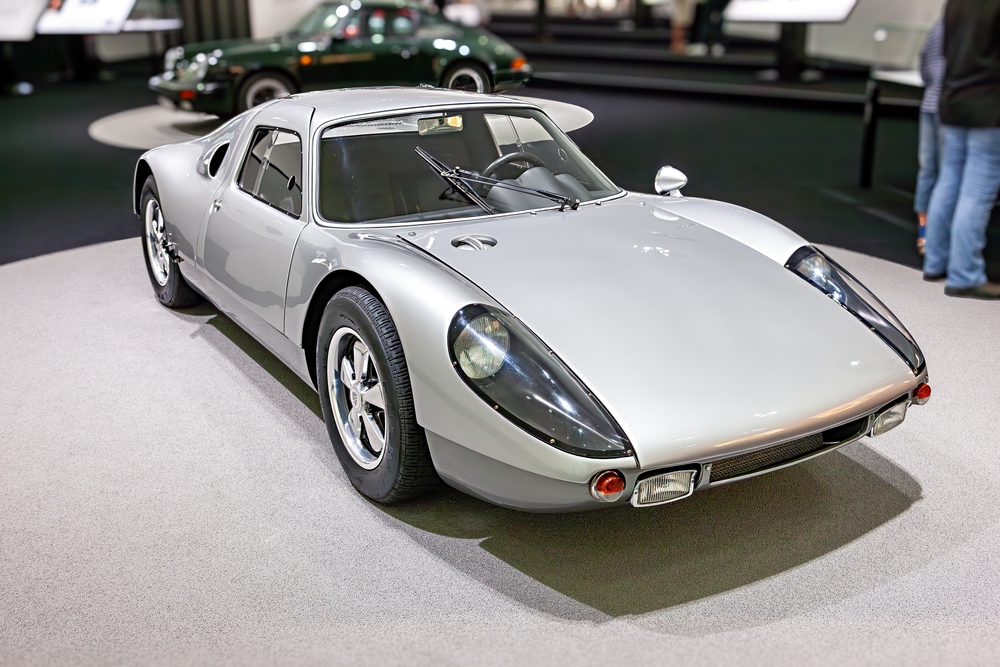
The Porsche 904 Carrera GTS, launched in 1964, was a mid-engine sports car that excelled on both road and track. It achieved significant success in events like the Targa Florio and Le Mans, thanks to its lightweight construction and innovative design. The 904 played a crucial role in shaping Porsche’s future racing cars. Its influence is evident in the brand’s continued commitment to engineering excellence.
Porsche 961
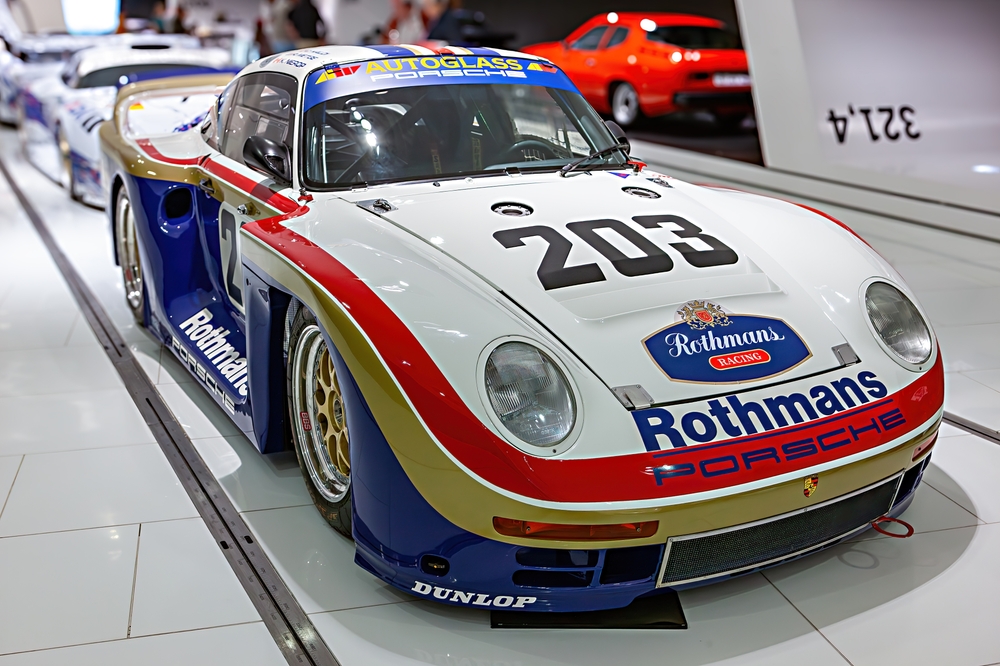
The Porsche 961 was the racing counterpart to the 959, developed for Group B endurance racing. Notably, it finished seventh overall and first in its class at the 1986 Le Mans, despite its short racing career. The 961 showcased Porsche’s ability to innovate and compete at the highest levels. Its legacy lies in its blend of advanced technology and racing performance.
Porsche 911 SC/RS
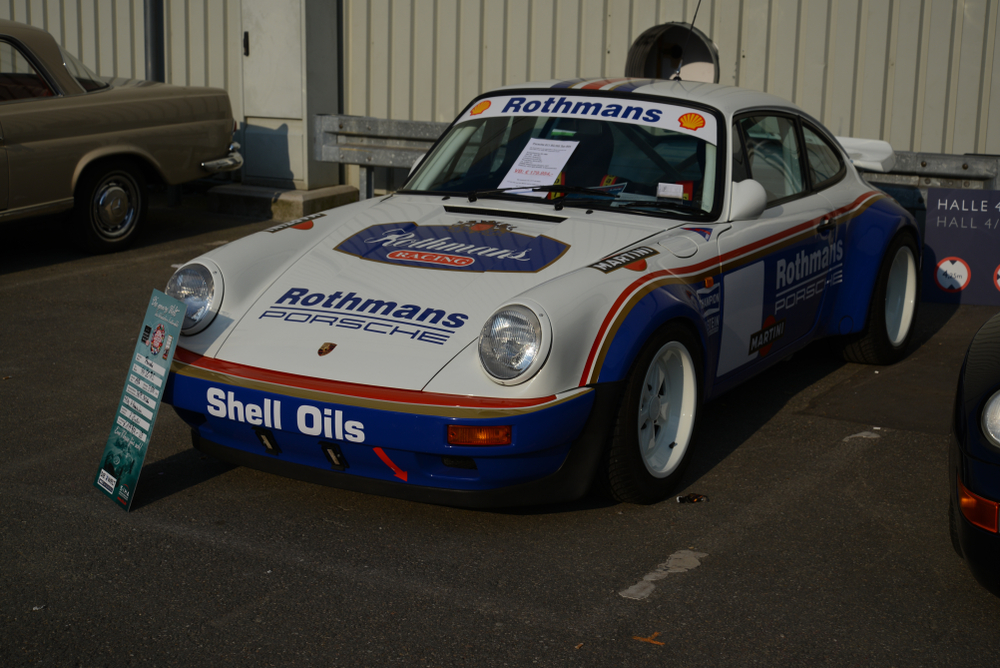
The Porsche 911 SC/RS, a limited-production rally car, was built in the early 1980s for the FIA Group B category. Its rugged design and impressive performance made it a success in events like the European Rally Championship. The SC/RS demonstrated the versatility of the 911 platform. Its achievements in rallying further solidified the 911’s reputation as a capable all-rounder in motorsport.
Porsche Taycan Turbo S
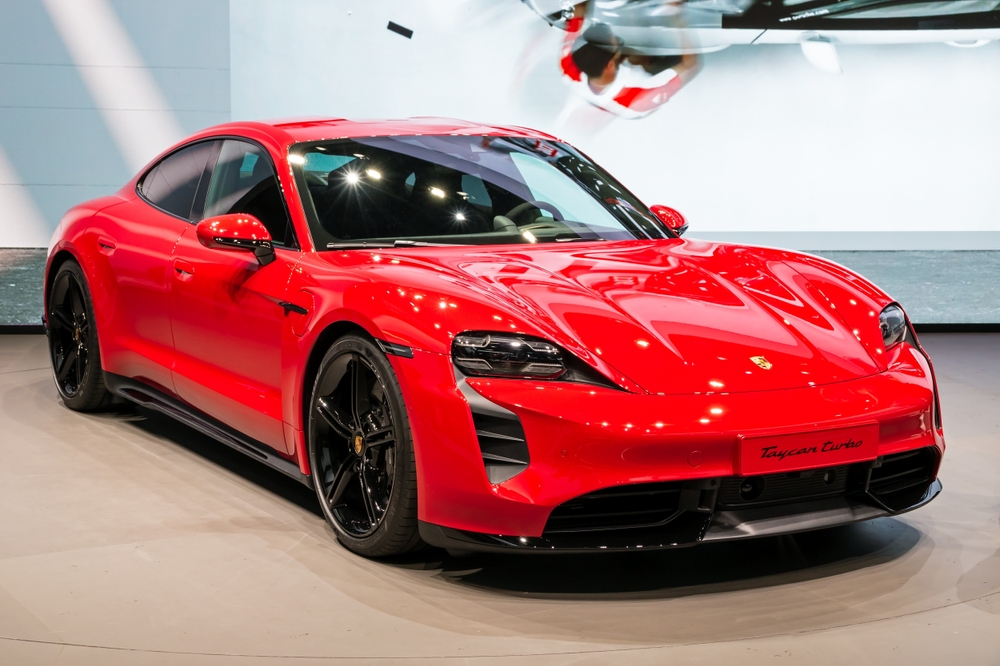
The Porsche Taycan Turbo S represents the future of Porsche’s motorsport legacy with its cutting-edge electric powertrain. While not a traditional race car, it has set multiple records on famous circuits like the Nürburgring, showcasing Porsche’s commitment to performance in the electric era. The Taycan Turbo S bridges Porsche’s rich racing heritage with its forward-looking innovation. Its impact on motorsport is just beginning.
This article originally appeared in MyCarMakesNoise.
More from MyCarMakesNoise
25 Overhyped Sports Cars You’ll Want to Avoid
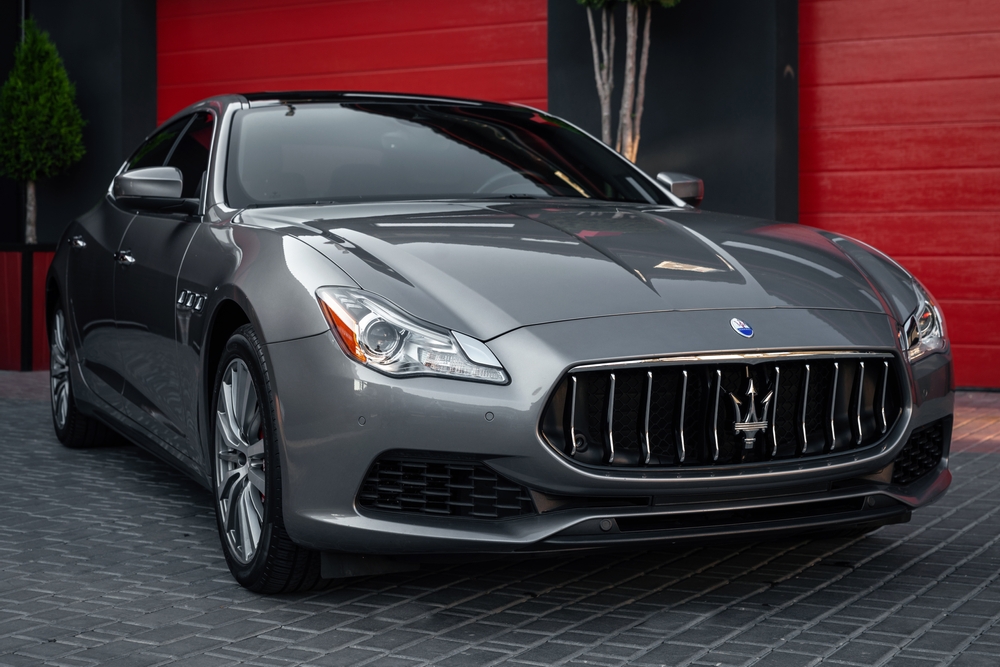
When it comes to sports cars, the allure of speed and sleek design can be irresistible. However, not all sports cars live up to their flashy looks and high price tags. From frequent breakdowns to disappointing performance, some models are more trouble than they’re worth. Read More.
20 Legendary Corvettes You Need to Know About
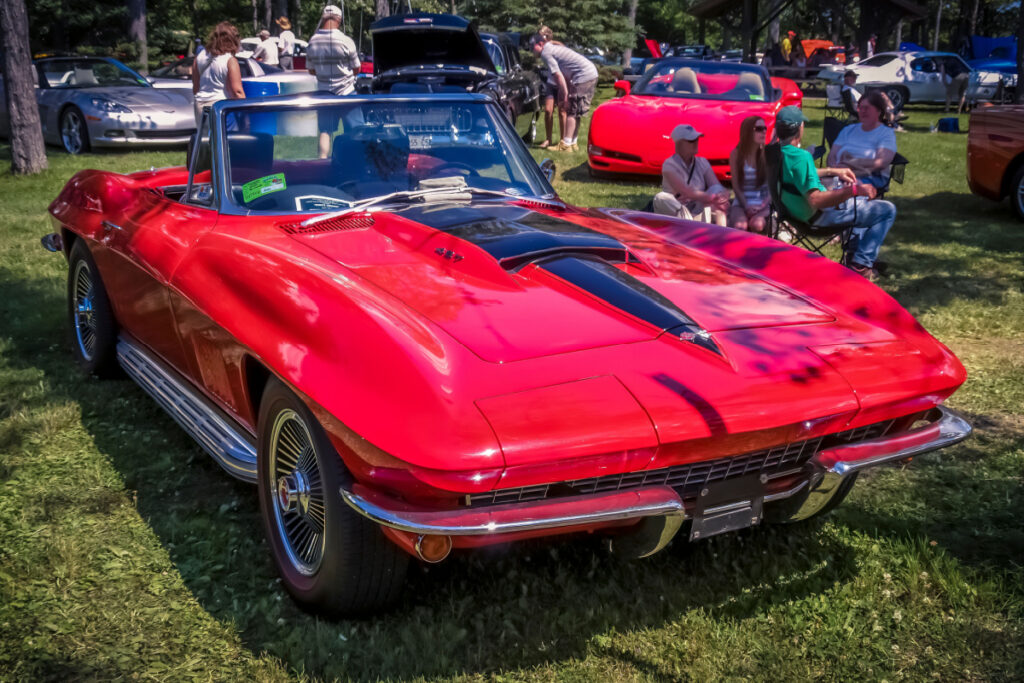
The Chevrolet Corvette has long been an icon of American automotive excellence, blending stunning design with incredible performance. Over the years, this legendary sports car has seen numerous iterations, each cooler than the last. Read More.
25 Iconic 2000s Performance Cars Every Car Lover Should Drive
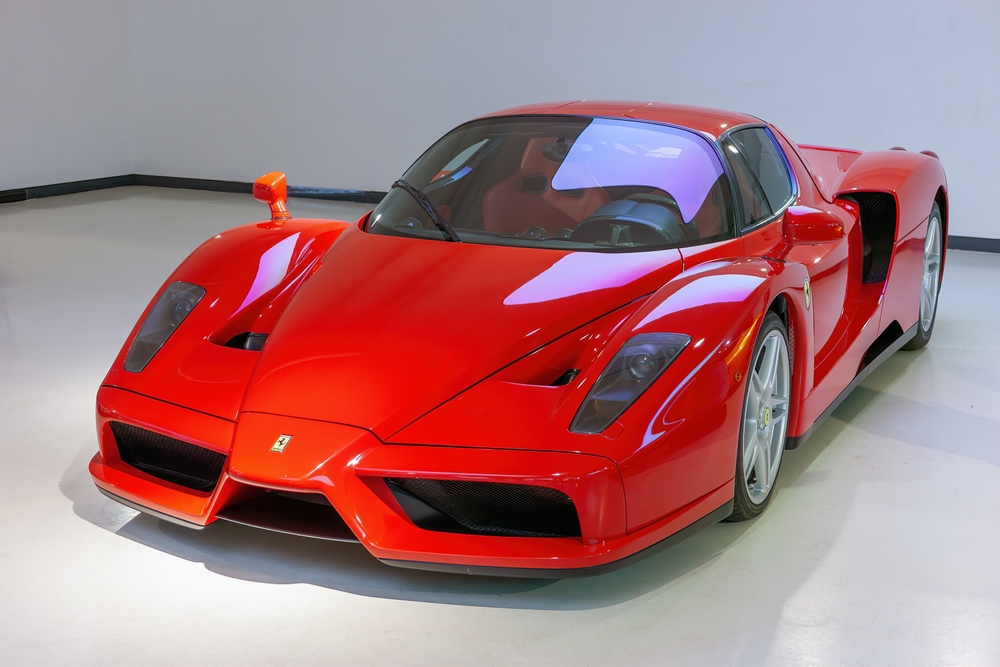
The 2000s brought us some of the most memorable performance cars in automotive history. From sleek designs to powerhouse engines, these vehicles captured the hearts of enthusiasts and set new standards in the industry. Read More.

